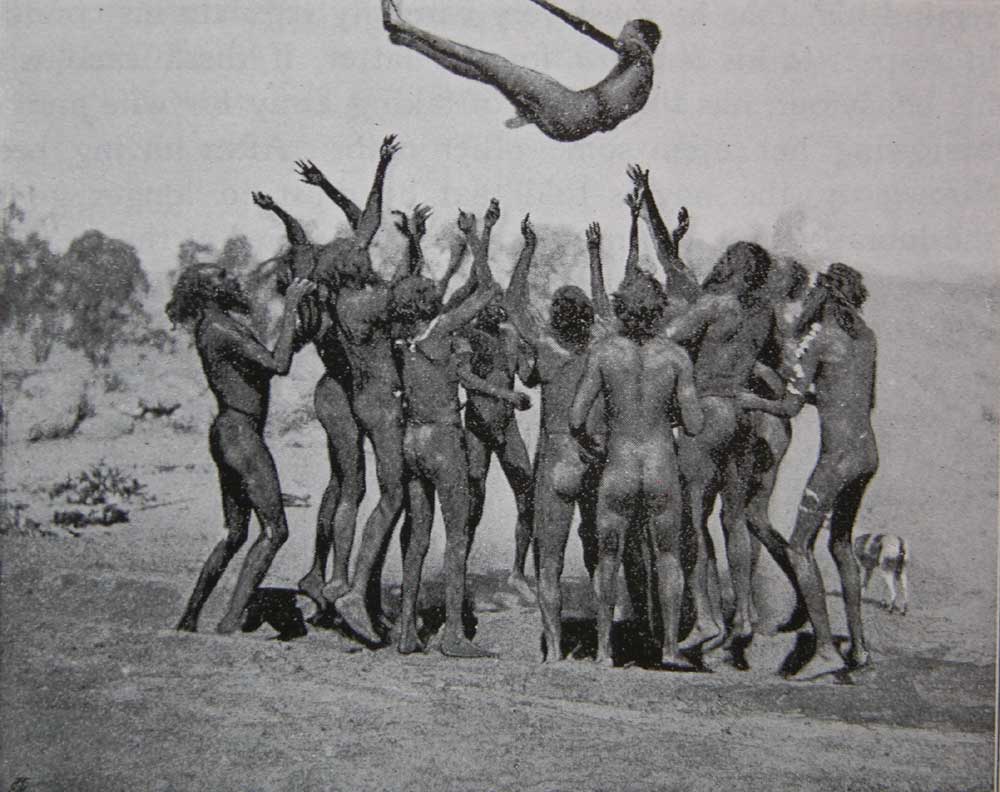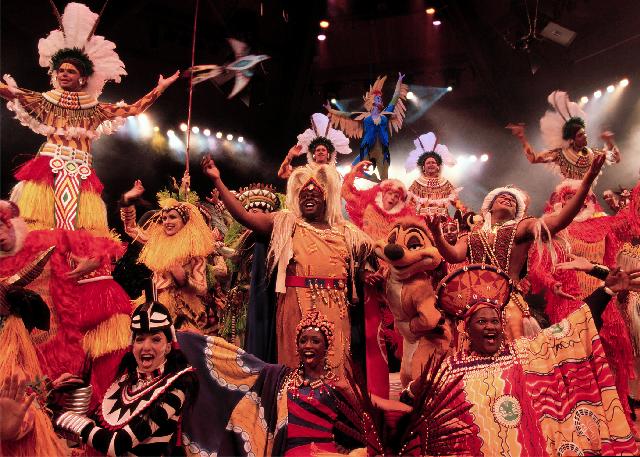
How should we best explain religion? The Economist reported recently ("The good god guide: Tentatively, scientists are asking: exactly what is religion, and what is it for?") on the project called Explaining Religion, "To bring a little scientific order to the matter, researchers taking part in a multinational project called Explaining Religion have spent three years gathering data on various aspects of religious practice and on the sorts of moral behaviour that religions often claim to govern. The data-collection phase was wrapped up at the end of 2010, and the results are starting to be published."
In one part of this study, researchers involved found that high arousal, painful, emotional religious activities are more effective in building group solidarity:
...Psychologists distinguish two types of long-term memory. One, semantic memory, records things consciously learned without first-hand experience—history lessons at school, for example. The other, episodic memory, records memorable events from a person’s own life.Interesting to ponder. We await further interpretations.
Harvey Whitehouse, also of Oxford, thinks these different ways of remembering are harnessed by what he sees as two distinct aspects of religiosity. The doctrinal religious mode, as he dubs the first of these aspects, favours frequent but not particularly exciting rites that allow large bodies of teaching to be stored in a person’s semantic memory. That explains Friday prayers in Islam, or daily mass for the more enthusiastic sort of Catholic.
The second aspect—the imagistic mode, in Dr Whitehouse’s terminology—relies on rare but highly arousing events that are etched into the episodic memory by dint of their emotional salience. In principle, these could be either cheerful or unpleasant. However, since depths of trauma are recalled more vividly than heights of euphoria, religions should, in his view, prefer the former. Which, indeed, they do.
In one particularly grisly rite of passage, for example, young men belonging to Australia’s Aranda tribe are first circumcised and then pinned face down as several of their elders bite the initiate’s scalp and chin as hard as they can, before slitting his urethra with a stone blade. That is the sort of thing you are not going to forget in a hurry. You are also going to feel a strong affinity with those others who have gone through it, and perhaps a certain disdain for those who have not—a solidarity-building exercise, then, if ever there was one...
 Controversial author James Frey has written a brilliant book about a contemporary messiah,
Controversial author James Frey has written a brilliant book about a contemporary messiah,  The good old American How To manual. What a wonderful cultural resource.
The good old American How To manual. What a wonderful cultural resource.
 No Leon Panetta is not a Jew. He is a Catholic.
No Leon Panetta is not a Jew. He is a Catholic. A large majority of all Jews attend a Seder, though the precise percentages are a bit elusive. A somehwat vague post
A large majority of all Jews attend a Seder, though the precise percentages are a bit elusive. A somehwat vague post  We wish all of our readers a dramatic Passover.
We wish all of our readers a dramatic Passover.  Traditionally in the US, the Easter season provides an occasion for elevated public discourse on theological topics.
Traditionally in the US, the Easter season provides an occasion for elevated public discourse on theological topics.
 We were finishing up teaching our course on the "Liturgy of the Days of Awe" today and observed at the close to our class that we talked about many dramatic aspects of the worship of Rosh Hashanah and Yom Kippur, but not that much about theological concepts like repentance or atonement, nor especially about transformation. That's because in particular we don't know what transformation means, we noted.
We were finishing up teaching our course on the "Liturgy of the Days of Awe" today and observed at the close to our class that we talked about many dramatic aspects of the worship of Rosh Hashanah and Yom Kippur, but not that much about theological concepts like repentance or atonement, nor especially about transformation. That's because in particular we don't know what transformation means, we noted. We don't read Jewlicious that often. Not sure why, perhaps because we always have the feeling that the site seems to be missing something.
We don't read Jewlicious that often. Not sure why, perhaps because we always have the feeling that the site seems to be missing something. One of Time Magazine's top stories this week during the Master's Golf Tournament is the saga of
One of Time Magazine's top stories this week during the Master's Golf Tournament is the saga of  It has amazed us that the rabid antiSemite Glenn Beck rose to such popularity in democratic America in our times. WP columnist Milbank theorizes that it was only possible in the midst of the great fear of economic ruin. Now that things are better, Beck is gone.
It has amazed us that the rabid antiSemite Glenn Beck rose to such popularity in democratic America in our times. WP columnist Milbank theorizes that it was only possible in the midst of the great fear of economic ruin. Now that things are better, Beck is gone.
 The Forward reviews new haggadahs and they love the web site
The Forward reviews new haggadahs and they love the web site  As most Jews know, when holy books die they must be buried with dignity, not discarded, not burned. It's called geniza, as in the Cairo Geniza, subject of a new book, published today,
As most Jews know, when holy books die they must be buried with dignity, not discarded, not burned. It's called geniza, as in the Cairo Geniza, subject of a new book, published today,  It is sad to report that instead of doing good for impoverished children in Africa, Madonna's project Raising Malawi has become a "disaster" according to Newsweek ("
It is sad to report that instead of doing good for impoverished children in Africa, Madonna's project Raising Malawi has become a "disaster" according to Newsweek (" Amazing to us that we turn the pages of the paper and find this story in the Sunday Times. Where to buy your Shabbos flowers in Brooklyn - and a perfect shop for Seder guests to buy flowers from Paul Berger,
Amazing to us that we turn the pages of the paper and find this story in the Sunday Times. Where to buy your Shabbos flowers in Brooklyn - and a perfect shop for Seder guests to buy flowers from Paul Berger, 
 Newsday
Newsday  Are Independent Minyans bad for the Jews? We think the trend towards ad hoc voluntary prayer groups -- called Indie Minyans -- is good for Judaism, enabling more choices, more competition and greater spirituality, and at less cost to financially strapped young people.
Are Independent Minyans bad for the Jews? We think the trend towards ad hoc voluntary prayer groups -- called Indie Minyans -- is good for Judaism, enabling more choices, more competition and greater spirituality, and at less cost to financially strapped young people.